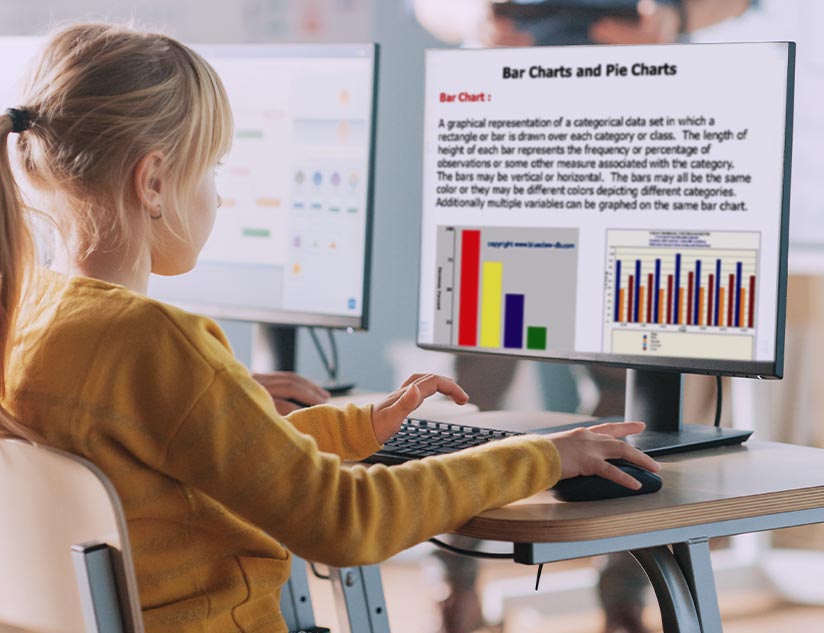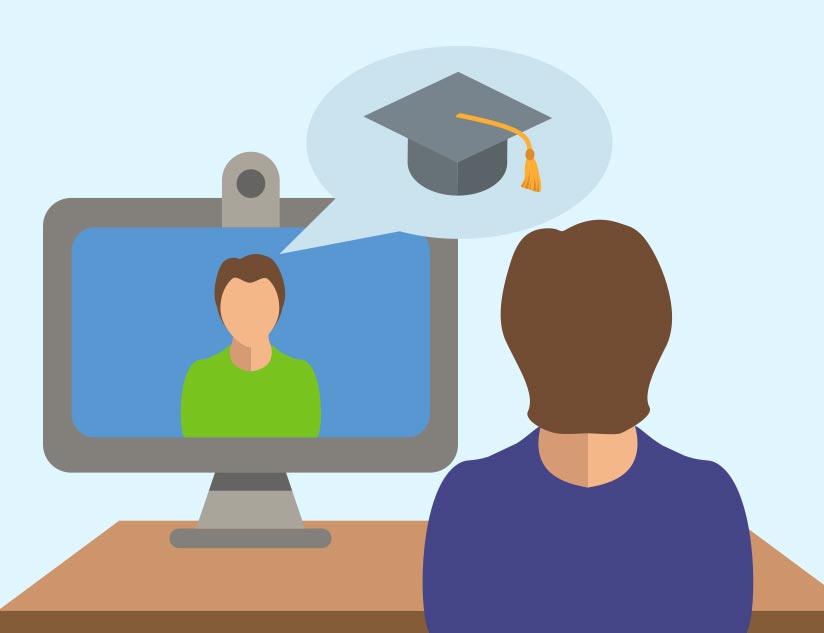What Makes Assessments Effective in the Era of Virtual Classrooms?
August 24th, 2020
The global eLearning market, valued at $103 billion in 2019, is expected to grow at a CAGR of over 12% from 2020 to 2027. This growth will not only be driven by advancements in EdTech or rising internet penetration. The COVID-19 pandemic has brought about a shift in education delivery that few other factors could have achieved. The virtual classroom came to the rescue of almost 1.2 billion or 67.6% of all students, who were left high and dry when the pandemic led to widespread school closures globally.
How are students feeling about the abrupt change today? According to new research, from Pearson and Wohnke, Jackson (2020), 41% of students surveyed struggled to manage their wellbeing in the absence of face-to-face communication with friends, peers, and lecturing staff. It was challenging for 34% to learn in a new way and format, while 34% found it challenging to manage their own time and schedule. Another 34% said that it was challenging to find quiet spaces to study in their current living environment, and 29% found isolation difficult.
Despite there not being as much face-to-face time between teachers and students, that isn’t making the testing of knowledge go away. It’s an area that needs attention, and possibly a new approach, to make online remote learning genuinely useful.
What Should Effective Online Assessments Achieve?
Assessments are vital and can help to identify strengths and weaknesses so that teachers can provide individualized support to each student and so that students can plan their study time accordingly. It’s a common experience for students to study for an assessment, only to discover that the questions are different in the assessment from what they had learned. Such cases can be an unfortunate learning experience for students. First, they feel that their hard work didn’t pay off, and, second, they have difficulty trusting the teacher.
This problem can become quite common in online learning. There can be a strong disconnect between teachers and students when using simple video conferencing tools for virtual classrooms. It is common to experience the communication gap, and students might fail to understand what is essential from an assessment perspective. So, for teachers to create assessments that adequately assess students’ knowledge and understanding, they need useful edtech tools.
For teachers, the best assessments serve as sources of information about how each student is progressing and where they need additional support. It also serves as a review of their teaching methods. If the students are not performing well, they might need to change how they teach. But teachers must create assessments that are unambiguous and, therefore, not susceptible to misinterpretation.
Another vital part of efficient assessments is that the students must get useful feedback based on their performance. Feedbacks form a crucial segment of the overall learning experience, and teachers should follow the assessments with feedback that points to the mistakes of the students and presents the concept in a new and engaging way. The basic tools lack this feature and can hamper the online learning experience.
How to Make Online Assessments Effective
Traditional assessments are meant for physical classrooms, with the teacher face to face with the students. No wonder such an assessment might not work in the virtual world. Here’s a look at some ways online assessments can be made most effective.
Adaptive Assessments
Adaptive assessments start with a large pool of questions, selected depending on the response of the students. In case a student gives a few incorrect answers, the difficulty of the problems can be reduced.
Similarly, if they are giving correct answers, the difficulty level can be increased. Adaptive assessments are more accurate than fixed-form tests, including twice as long. Adaptive assessments can provide better information about student learning in less time.
Adaptive assessments are also highly efficient at gaining insights into which students excel in academics or which ones are struggling. On the other hand, fixed form tests only focus on the middle of the student spectrum.
Video Assessments
With video assessments, teachers can provide innovative individual and group video assignments that students complete asynchronously. The teacher can give personalized feedback and subsequent coaching later. Teachers can also offer pointed feedback, using time-stamped video comments and text. Also, video assessments can be used for students to demonstrate knowledge and skills in real-time.
One of the main advantages of video assessments is that it allows teachers to give personalized feedback to each student, leading to a better connection between the students and the teacher and higher engagement among students with learning. This is extremely important and often difficult to achieve in virtual classrooms. Plus, it is much more engaging and time-saving compared to written feedback.
Immediate Feedback to Assessments
Instant feedback can drastically improve the effectiveness of assessments. A study conducted by the Department of Educational Psychology, University of Minnesota, found that immediate feedback improved educational material comprehension. Another study published in ResearchGate revealed that instant feedback could enhance autonomous learning abilities among students with learning disabilities.
Instant feedback gives more time to students to work on their weak areas. Besides, the data from the instantaneous feedback helps instructors to adjust directions and create a meaningful learning path for individual students.
Standards-Based Assessments
Of course, the education system cannot do away with standards-based assessments completely, especially for the K-12 segment. EdTech allows the seamless creation and deployment of standards-based assessments with just a few clicks. These assessments help in knowing the level of understanding of concepts among students and how well they can apply them in practical situations.
Such assessments can aid in testing critical thinking, reasoning, interpersonal skills, and more. These assessments are also an essential part of the Next Generation Science Standards (NGSS), which are already being used in STEM education.
Game-Based Assessments
Educators can make assessments much more engaging for the students by including gamification elements, such as leaderboards. Gamification in assessments enhances learning experiences by motivating students to do better in the assessments. Teachers can use games and interactive features to provide feedback to the students.
Assessments Reporting
School and district administration, as well as parents, can receive customized reports helping keep everyone in the loop while helping parents stay abreast of child’s academic progress.
EdTech has brought effective means of assessments to the virtual classroom. MagicBox™ is an award-winning digital learning platform that offers robust assessment features. It allows educational publishers and schools to customize assessments, create new ones, modify existing ones, and more. Such assessments can provide more knowledge in less time than the traditional methods, drastically improving learning outcomes. Contact us to see how effective assessments can be deployed for your students.















